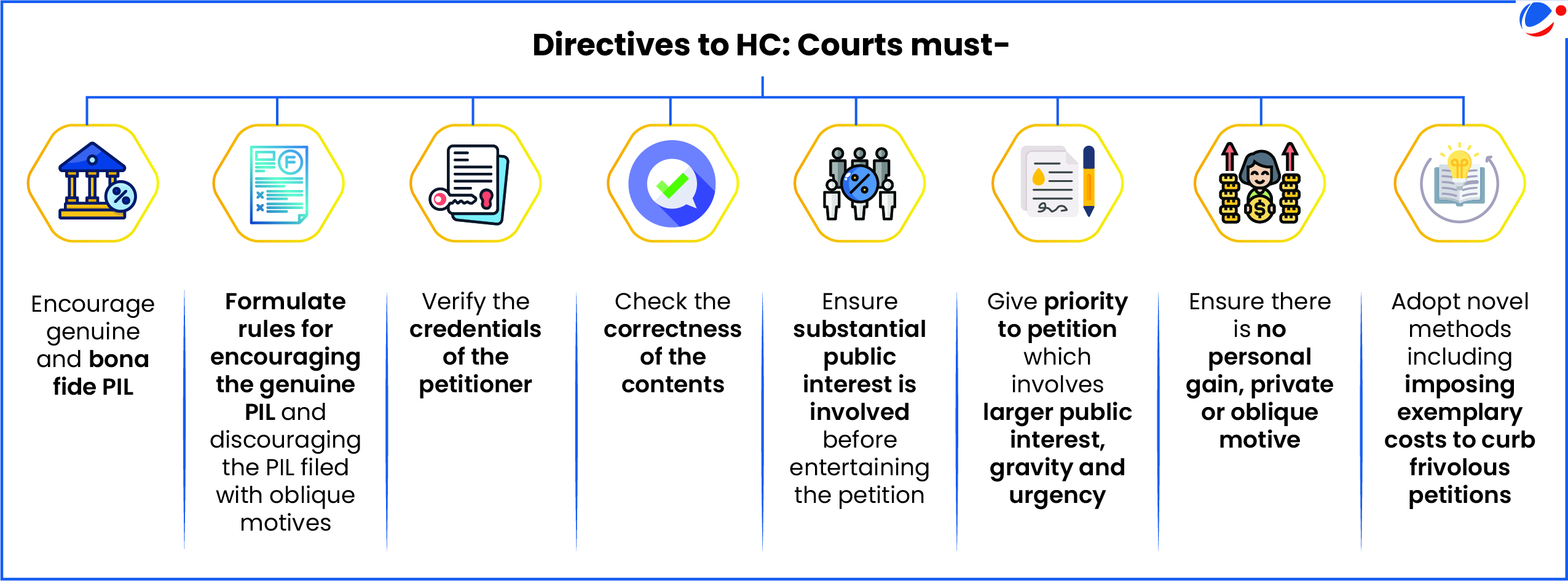Concern regarding misuse of PIL was raised while dismissing a PIL asking the government to set up an independent body to regulate content on OTT and other platforms.
About PIL
- Defintion: PIL broadly refers to the litigations, filed by a party without any ‘locus standi’ (i.e., the party who is not aggrieved), to protect the general public interest.
- Genesis:
- In ‘Mumbai Kamgar Sabha v. Abdulbhai Faizullabhai 1976, the SC relaxed the principle of Locus Standi for the first time thereby paving the way for origin of PIL.
- Hussainara Khatoon v. State of Bihar, filed by an activist lawyer regarding the inhuman condition of the prison, was the first PIL in the country.
- Significance: It brings justice to people who are ignorant, indigent, or illiterate.
Misuse of PIL
- As PIL is not been defined in any act, there have been many instances of abuse of this practice.
- Hence, in State of Uttaranchal vs Balwant Singh Chaufal & Ors, 2010 Case the SC issued eight directions to High Courts to preserve the purity and sanctity of the PIL (Refer to infographic).







